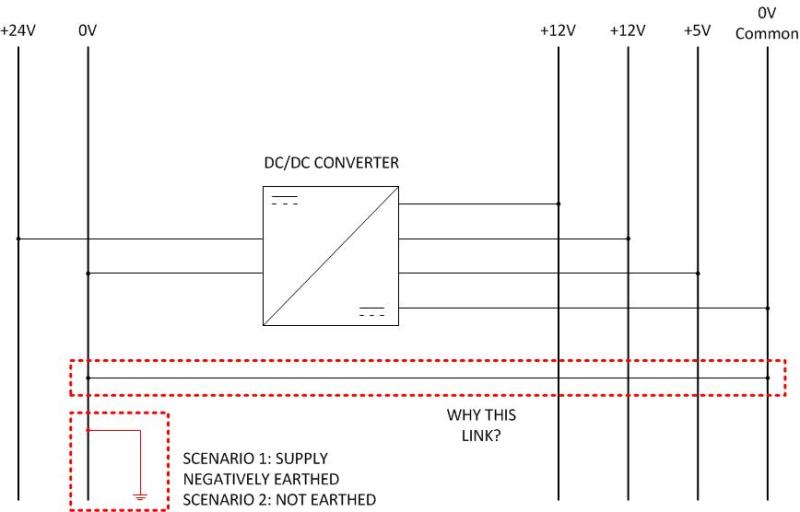sysengineer
Electrical
I have two identical DC systems fed from separate DC/DC isolating converters, one converter is fed from a negatively earthed DC supply and the second is fed from a floating DC supply. In both cases the negative of the DC/DC converter supply is tied externally to the 0V or 'common' of the output side. There is 1kV rms isolation between the input and any output on this particular power supply. It's old, 1983 I think and therefore don't have or can't find a data sheet. Its made by a company now owned by Rockwell Automation but it was discontinued years ago.
My question is what reasons would there be to do this in either case?
Also depending on the size of the converter, what current would be expected to pass through this connection?

My question is what reasons would there be to do this in either case?
Also depending on the size of the converter, what current would be expected to pass through this connection?

